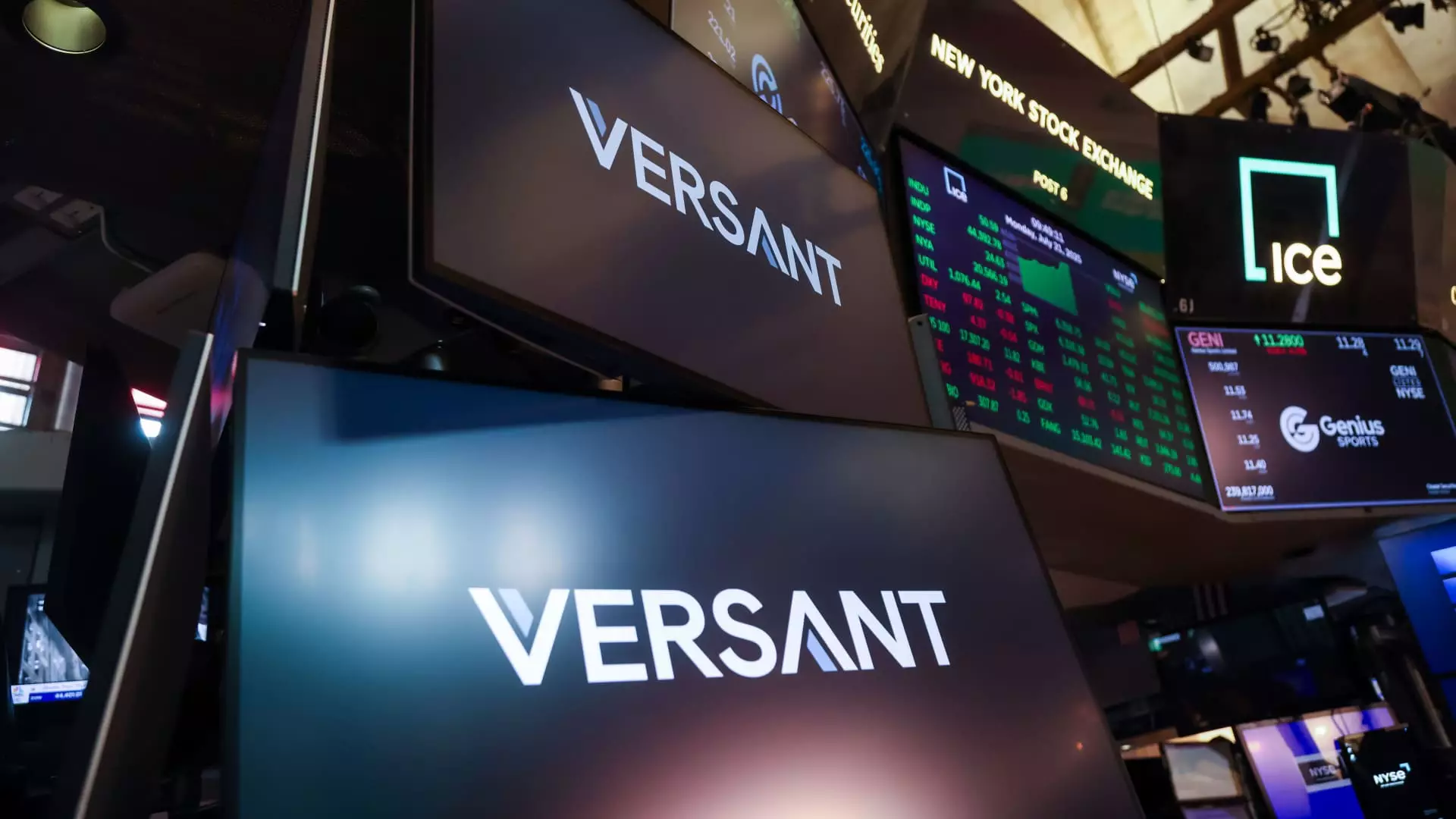The recent announcement of Versant’s formation as an independent entity by Comcast signals more than just corporate restructuring; it underscores a deliberate shift within media conglomerates to strategically reposition themselves amid a tumultuous industry landscape. While divestments often aim to streamline operations and shed underperforming assets, this move raises serious questions about the underlying motives and potential consequences for media independence and diversity. The choice of board members, featuring individuals from finance, tech, and entertainment sectors, appears to prioritize corporate profitability and influence at the expense of public trust and journalistic integrity.
This decision appears less about fostering innovation and more about consolidating control within a new power structure that can manipulate narratives, capitalize on digital monetization, and possibly sideline critical journalistic voices. Under the guise of creating a “leading independent media company,” the move risks further entrenching corporate interests in what should be a public service rather than a profit-driven enterprise. The composition of the board, filled with industry veterans and financiers, suggests an emphasis on navigating markets and maximizing shareholder returns rather than upholding journalistic standards or serving public interest.
The Board Appointments: An Ominous Sign of Corporate Priorities
The selection of board members is telling. Mark Lazarus, with his background at NBCUniversal, is expected to steer Versant towards leveraging legacy media assets for digital-age profitability. David Novak’s transition from Yum Brands to Chair signals an alignment of consumer goods expertise with media operations—an intriguing but potentially troubling crossover that could blur the lines between entertainment, marketing, and consumer manipulation. Rebecca Campbell, with her Disney experience, might bring operational expertise, but also raises concerns about corporate culture and influence over content decisions.
More alarming is the inclusion of experts like Creighton Condon, whose legal experience in mergers and acquisitions suggests a focus on consolidation rather than diversity of thought. Similarly, Michael Conway’s broad experience in consumer goods and retail could shape strategic choices rooted in market expansion rather than journalistic integrity. The presence of AI and financial professionals like David Eun and Len Potter hints at a future where data-driven decisions and monetization strategies will overshadow traditional media values. Positioned as guardians of an “independent” company, their backgrounds reveal a clear alignment with corporate growth and technological dominance rather than the free dissemination of information.
Implications for Media Democracy and Public Trust
This spinout exemplifies a broader trend towards corporate consolidation under the banner of independence, which can be profoundly deceptive. The media’s role as a watchdog and a platform for diverse voices is endangered when ownership is increasingly driven by financiers and industry insiders with vested interests in profit maximization. As Versant positions itself as a standalone entity, it’s likely to prioritize lucrative programming, digital content, and targeted advertising over objective journalism.
The fracture of NBCUniversal’s cable networks into a separate company sets a concerning precedent for the future of media pluralism. Instead of empowering independent voices and fostering diverse content, this move could exacerbate news consolidation, reduce competition, and create echo chambers aligned with corporate interests. Public trust is fragile, and corporate maneuvers like this threaten to deepen skepticism towards media institutions, further entwining commercial motives with the dissemination of information.
Ultimately, the formation of Versant serves as a stark reminder of the ongoing shift in the media landscape—a shift that consolidates power away from creators, journalists, and the public into the hands of corporate financiers. While the promise of independence sounds appealing, the reality of board compositions and strategic focus suggests otherwise. As consumers, we must scrutinize these developments and demand accountability, emphasizing that media serve society first rather than shareholder profits. This move, masked as innovation and independence, threatens to undermine the very foundations of a functioning, equitable democracy.


Leave a Reply